
In today’s world, there are many different groups that each hold up their own values and standards for status. But there is also a set of qualities and behaviors that have almost universally conferred status across time and culture. Cultivating these traits will enhance your status wherever you go and in whatever you do, and help increase your overall influence both in your chosen community and in the wider world.
These characteristics form a basic foundation of status, such that, even if you don’t end up excelling in any one particular niche, you’ll still experience the confidence and well-being that comes with being healthy, having strong social support, and feeling competent and useful. Indeed, the best thing about most of these status pursuits is that they come with major benefits outside of status itself. Status need even not be their end goal, but merely a happy by-product.
These status avenues, and the qualities attendant to successfully seeking them, are also less subject to value judgments; they’re “preferred indifferents.” As long as you don’t pursue them at the expense of virtue, they don’t require you to change your beliefs or alter your principles; they don’t require you to compromise who you are but to simply, in the words of the Greek philosopher Pindar, become who you are.
Becoming who you are doesn’t mean becoming whoever you want to be. You may have some crazy dreams that, frankly, are never going to happen, simply because of the limitations that have been placed on you by culture, biology, and even blind luck. Perhaps you’re not good looking, perhaps you grew up in a terrible family, or maybe an accident has befallen you that hinders your ability to work. Maybe because of these limitations, you’re never going to be a millionaire playboy who flies around on private jets with naked women, suitcases of cash, and lots of awesome guns. (See Dan Bilzerian.)
And you know what. That’s okay.
Because becoming who you are simply requires that you work within the limitations life has set for you. Instead of seeing these limitations as a curse, becoming who you are sees them as a blessing in disguise — an opportunity to get creative in trying to make the most of what you’ve got.
So instead of thinking of increasing your status as trying to be better than other people, think of it as striving to become your best self — doing what you can to always put your best foot forward. Follow the admonition of Teddy Roosevelt: “Do what you can, with what you have, where you are.”
There are accessible ways to increase your status in each of its main categories:
How to Improve Your Embodied Status
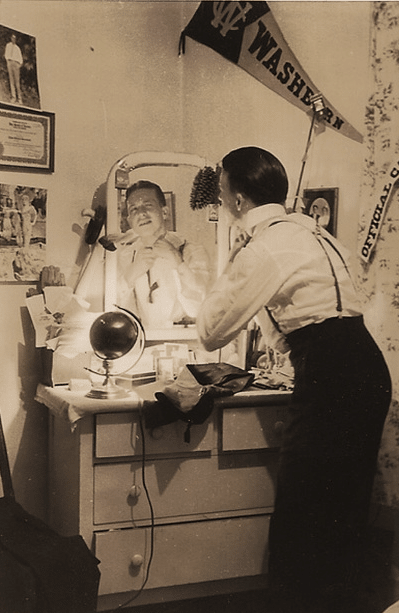
Your embodied status is the status you get from your physical characteristics. Tall, handsome, fit men have more status than short, unattractive, chubby men. Judgments based on embodied traits represent our most deeply ingrained status measuring stick. For thousands of years, humans largely evaluated each other based on physical characteristics, since they had the most to do with basic survival. And though the modern landscape has changed, people have a hard time turning this impulse off.
Nonetheless, this is the status category people most often push back against, as it seems to deal in the merely superficial. Shouldn’t it only matter what’s on the inside? Shouldn’t you write people off who care about what you look like on the outside?
Undoubtedly, your inner skills and traits should be of primary importance in your own sense of self-worth and the way others judge you. But people may never get to know those invisible qualities if your appearance and body language don’t initially draw them in. The rejoinder to this fact is typically to say, “Well, I don’t care about attracting such superficial people anyway.” But all people have the same visceral reaction to a person’s physical impression — some are just better than others at turning that measuring device off, and digging deeper into the people they meet. Yet even for these persistent folks, quieting their initial reaction takes intentional effort. Thus, when people purposefully force others to overlook their off-putting appearance and mannerisms in order to discover the man within, they’re essentially acting from a position of narcissism, saying, “I know your brain will have a deeply ingrained impulse to write me off, but I want you to work to overcome it anyway, because baby, I’m worth it.”
By enhancing your appearance and body language, you work with people’s basic inclinations instead of against them, making it easier for folks to want to get to know you. It’s a move that’s both self-serving and generous at the same time.
Keep in mind that embodied status signals don’t merely confer status because of their face value, but because they point to underlying traits. The goal then is simply for your “packaging” to accurately and winningly advertise the contents within. Think of your outward appearance and mannerisms as providing others a seamless doorway to your inner man.
While no one has complete control over their embodied status — you don’t have a say about the genes that made you short nor about the disfiguring accident you had as a child or even as an adult — you can influence some aspects of it. Focus on the things you can change. You may never look like Brad Pitt in Fight Club, but you can be your best self.
Below are a few suggestions you can use to improve your embodied status:
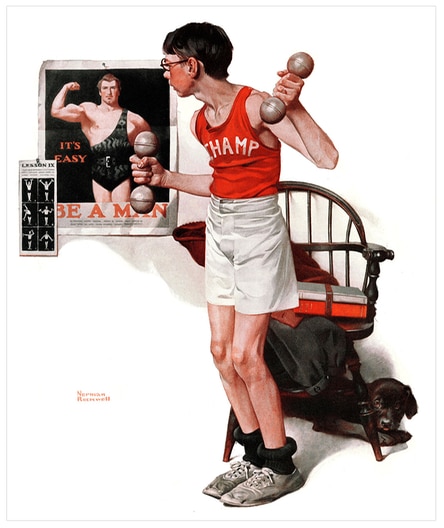
Get in shape. A fit, muscular physique sends a signal to the most primal parts of other people’s brains about your strength and ability to dominate and protect. Fitness also signals to other people that you’re disciplined and capable of enduring pain in pursuit of a goal. This is likely why men with an average-to-husky build make more money than both their skinny and obese peers. As reported by The Wall Street Journal, research has found: “Thin guys earned $8,437 less than average-weight men. But they were consistently rewarded for getting heavier, a trend that tapered off only when their weight hit the obese level. In one study, the highest pay point, on average, was reached for guys who weighed a strapping 207 pounds.”
You don’t have to have a perfectly chiseled physique or be super swole to get the status benefits that come with looking fit. In fact, both men and women often rate men with super chiseled bodies as less attractive than men with higher percentages of body fat. Instead of communicating health and vitality, extreme leanness can signal vain self-absorption. People would rather be around a man who spends his time developing skills and attributes that make him useful and add value to those around him, than one who invests all his time, attention, and willpower in managing his macros. The sweet spot then is to be fit, without being freakishly fit.
We’ve got plenty of articles on how to get in shape. Read through our Health and Sports sections for some ideas. Keep in mind that diet accounts for 80% of physique changes. If you’re overweight, start eating fewer calories in general and eliminate as many “bad” calories as you can from your diet, specifically sugar and refined carbohydrates. If you’re underweight, start eating greater amounts of good-for-you whole foods.
Whether you’re overweight or underweight, start weight training. Nothing packs on lean muscle like loading up a barbell and lifting it up and down a few times every other day. For the novice lifter, I recommend the Starting Strength program.

Wear clothes that fit you well. Even if you’ve got a rock-solid body, clothing covers about 90% of it and plays a huge role in how people perceive you. So if you’re fit, you want to wear clothes that enhance what you’ve got lying beneath, and if you’re not in great shape, you want your clothes to downplay that fact and improve your overall appearance.
That means accentuating the masculine body features that most signal status. For men, a “V”-shaped torso — broad shoulders that taper to a slim waist — telegraphs health and physical fitness. So wear clothing which enhances that silhouette. A sport jacket, which broadens and heightens your shoulders, while bringing you in at the waist, is one of the best pieces of menswear for this purpose.
With a sports coat, and anything else you wear, fit is paramount in helping you look put-together. The most general guideline for a good fit is that the fabric should sit close to your skin without pinching or constricting. You shouldn’t feel tugging when you move around, but you also shouldn’t have any loose billowing or sagging. Suits and shirts should be tailored so they taper down your waist, thus accentuating your manly torso.
If you’re overweight, but are working to get in shape, fit is even more important. People have a lot of negative assumptions about overweight men: fat, sloppy, lazy, greedy, etc. As unfair as these judgments may be, they’re the reality in our society. But with properly fitting clothing, you can blunt these undesirable status signals.
For more detailed information on style for large men, read our article on the topic.
If you’re skinnier or shorter, be sure to have your clothing tailored so that it fits you. If you’re in the vertically-challenged category, Brock over at the Modest Man is a great style resource.
Take care of basic hygiene and grooming. Keeping up with basic grooming and hygiene can go a long way in improving your embodied status. Truly. Not only does it give you the appearance of health and vitality, it also signals conscientiousness, a trait that almost everyone values.
Just do the stuff that your mom and fifth grade health teacher taught you. Shower every day, wear deodorant, brush your teeth, floss, shave, and keep your facial hair well-groomed.
If you have problems with dandruff, use an anti-dandruff shampoo. If that doesn’t work, consider visiting a dermatologist for a prescription shampoo. (This is something I had to do.)
If you’re a grown ass man and still break out with acne (me again), wash your face twice daily with a gentle cleanser and apply a benzoyl peroxide cream on the problem areas. Also, consider avoiding or at least reducing foods that contribute to breakouts like sugar, refined carbs, and caffeine.
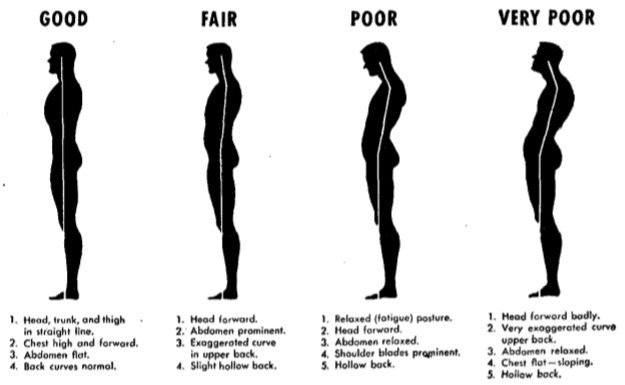
Improve your posture. Our body language does a lot to convey our status. If we think we have low status, we’ll often assume a submissive posture like slouching or looking down. If you look low status, others will think you’re low status. So stand tall with your chin up (you don’t want to throw your chin too far up though, or else you’ll start looking snooty — FDR had this problem).
For detailed info on improving your posture, see this guide.
Have a firm handshake. Your handshake is another form of embodied status. For men, firm handshakes are associated with dominance and confidence; limp handshakes with submissiveness and uncertainty. If you want to convey high status, have a firm, manly handshake. Don’t make it too firm, though. If you crush someone’s hand, you’ll just come off like a low-status douche.
Talk low, talk slow. Men who speak with lower voice pitches are perceived as having higher status than men who speak with higher pitched voices. One study found a correlation between salary and voice pitch — the deeper the voice, the higher the salary. In fact, researchers found that a 25% decrease in voice pitch was associated with a $187,000 increase in annual salary. While nature determines whether or not you’ll have a James Earl Jones baritone, there are some things you can do to deepen and improve the pitch and tone of your voice. Check out our video and article on how to develop a manly voice.
High status men also speak slower and aren’t afraid of silence in conversation. Talking fast, and rushing to fill any quiet moment makes you seem nervous and insecure. So summon your inner Sam Elliott and make an effort to slow down your speech, speaking only when you’ve got something worthwhile to say.
Look people in the eye when you talk to them. Research has shown that people who make frequent, high levels of eye contact are perceived as more dominant, high status, and personable. Low status individuals will make less eye contact and will typically be the first to avert their gaze.
So heed the advice dad gave you when you were a kid: look people in the eye when you talk to them! For the socially anxious, this can be challenging, but with practice, you’ll soon get over your fear.
But make sure you do eye contact the right way. If you try to stare holes into the back of someone’s head, you’re just going to creep them out. Be sure to read our detailed article for tips on how to make effective eye contact in life, business, and love.
How to Improve Your Ascribed Status
Ascribed status is that which you have by merit of birth (race, sex, class, etc.), belonging to particular groups of people, or assuming certain roles and leadership positions. Just like embodied status, there are parts of our ascribed status that we really don’t have much control over; if you’re a black man born on the South Side of Chicago, or a white guy raised in an old New England family, people are going to make certain assumptions about you that you can’t do anything about.
But just as with embodied status, there are some things about our ascribed status that we can influence:
Build your social network and surround yourself with quality friends. In caveman times, being able to cooperate with other men in hunting and fighting was vital for survival. Selfish, misanthropic, a-holes not only hurt themselves, but also the tribe. Those who had a knack for political and social adeptness, on the other hand, were able to build ties with others and accumulate a strong team of allies. The fact that they were the kind of men other men sought to partner up with gave them high status.
What was true thousands of years ago is true today. People make status judgments based on the size and quality of a person’s social network. If you have more friends and connections, it’s a signal that you have the relational skills others find valuable. You have status. If you don’t have a lot of friends or your professional network is small, people will usually assume there’s something off-putting about you — that you don’t get along well with others and don’t have the qualities necessary to maintain relationships.
And it’s not just quantity of people in your social network that determines ascribed status, it’s also the quality. If you hang around a bunch of losers, even if you aren’t one yourself, people are going to ascribe their qualities to you. As the old aphorism puts it: “When you lie down with dogs, you wake up with fleas.” If you hang around ambitious, smart, hardworking, tough dudes, on the other hand, people are going to assume that you’re ambitious, smart, hardworking, and tough, too.
So one thing you can do to improve your ascribed status is to 1) improve your social skills, and 2) use those social skills to increase the size and quality of your social network, with an emphasis on face-to-face connections (we’ll talk more about why later). Learn how to make small talk, avoid conversational narcissism, really listen to others, convey warmth, give and take compliments, and more. Then get out there and start getting to know more people.
If you’re like many men, you probably have few, if any, close friends. So start there. I know it sounds kind of weird, but set a goal to make at least one or two good friends that you see on a regular basis. Yes, it’s a hard thing to do when you’re a grown man, doubly so when you’re married and have kids, but it’s possible if you’re intentional and proactive about it.
While you’re working on developing those close friendships, work on developing your “weak ties” as well. Attend conferences for work or based around an interest of yours. When you get invited to a party, go. Join a sports team. Get active in your church. Network and build your metaphorical Rolodex. Not only will these weak ties provide you with social proof of your ascribed status, they can also be the source of those close friendships you’re trying to form.
Besides building up the size of your social network, take a look at the type of people you associate with. Seek out people who push and challenge you to be better and dump toxic people from your life.
A caveat: while you should certainly be intentional about building your social network, it’s important that your intention doesn’t turn into superficial single-mindedness. People can sense when you’re using them in a purely utilitarian matter, which makes them think less of you and greatly lowers your status. Building up your social network effectively and in a non-icky way requires you to always try to bring more value to the table than you take. More on that in a bit.
Volunteer for leadership positions. Research has shown that randomly assigning someone as a “leader” for an ad-hoc group will give that person status in the eyes of his peers. Sure, he might do something later on to lose that status (being too domineering, making poor decisions that affect the group), but simply filling the role of leader gives the person status.
With that in mind, volunteer for leadership positions at school, work, and in your community as your time and talent allow. You’d be surprised at the opportunities that are out there. Neighborhoods, clubs, churches, civic groups, and work associations rely on volunteer leaders. Is the work often thankless? Yes. But you can earn some ascribed status by taking on that responsibility, and leadership positions also provide you opportunities to increase your social network (which increases ascribed status) as well as to earn achieved status by adding value to the group through your skill and know-how.
How to Improve Your Achieved Status
Achieved status is status you earn by providing value to others through your abilities, skills, and talents.
Increasing your achieved status within any social group comes down to one thing: be useful.
Useful people are high status people, as they bring value to those around them. This value can be offered on the personal, professional, or societal level: the employee who’s able to make an impromptu presentation that wins over the client; the boyfriend who can fix his gal’s washing machine; the inventor who creates a time-saving product; the friend who can pull you out of a funk; the musician who writes a fantastically catchy song; the politician who offers a moving speech. Those who improve the lives of others in ways both big and small gain status in their eyes.
So instead of looking at what other people can do for you, look for what you can do for other people.
It’s counterintuitive, yes. We typically think of individuals with high status as demanding a-holes. While these sorts of individuals can gain and maintain status in the short-term with this domineering approach, in the long run they often lose the respect of their peers. Remember, even chimps don’t like to be bullied and will eventually revolt against an overly aggressive and domineering alpha. The research shows that long-lasting respect and status goes to the person who has talents and skills that can help their social group and, most importantly, are willing to share those talents and skills for the benefit of their peers. Status requires generosity.
What’s interesting is that low status individuals have a tendency to take the complete opposite approach to gaining status. Instead of taking steps to ingratiate themselves to those around them, low-status men are more likely to seek status by engaging in aggressive and hostile behavior. This makes sense when we take into account the status-serotonin connection we discussed in our article about the brain chemistry of status. Serotonin makes us feel calm, social, and in control. Serotonin levels increase as one gains status and decrease as one loses status. So folks who constantly encounter status failures likely have low serotonin levels, which results in hostile behavior, which only perpetuates and even deepens their low status. It’s a self-defeating cycle.
But the cycle can be broken. Research has shown that low status individuals can train themselves to shift their focus away from themselves and their low status and to start focusing on how to be useful to others. It certainly takes some discipline and humble pie, but it is possible.
With all of the above status conferers, remember that you don’t even have to seek after them from the desire for status itself, and can let status be their happy by-product. So too, remember that when it comes to these “preferred indifferents” — you do what you can to get them without letting them sidetrack you from virtue, but after you’ve done what you reasonably can, if there are places you still fall short, you face those status defeats with Stoic detachment. Control what you can control, and then let the chips falls as they may.
Become the Gentleman Barbarian: Combining Dominance and Prestige
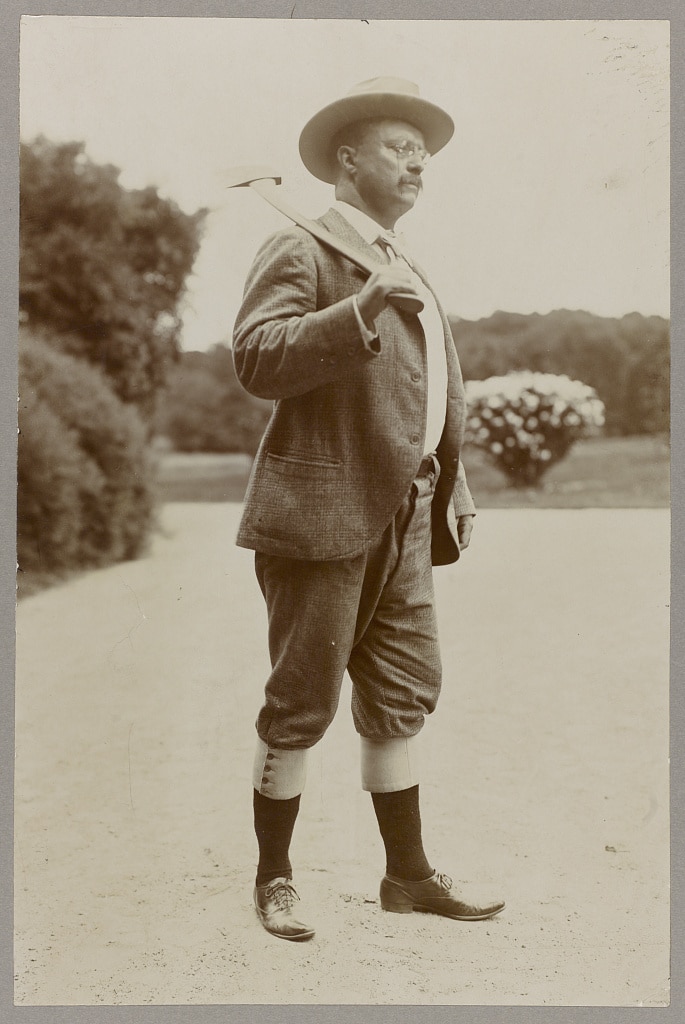
Sociologists posit that status hierarchies can be based either on dominance or prestige. This distinction was discussed in detail in this post on “the myth of the alpha male.” Here’s the Cliff Note’s Version: in dominance hierarchies, individuals gain status through threat, intimidation, and displays of force. Basically, your stereotypical “Alpha Male” behavior. In prestige hierarchies, individuals gain status and deference by displaying skills and knowledge that help others achieve their goals.
The modern West is largely a prestige hierarchy, and there’s a tendency in our current culture to denigrate status gained through dominance. We want men to be nice and useful, but not strong and domineering. But such a view is short-sighted. There’s a place for the “barbarian virtues” (as Teddy Roosevelt called them) of dominance in a man’s life.
Even if the qualities of physical strength, courage, and boldness aren’t often celebrated in our culture, they’re still recognized and respected by everyone on a very visceral level. And the status they confer can still sometimes come into play.
When a guy at a bar starts pushing you because “you looked at him wrong,” do you think he cares about the fact that you can make a mean pasta carbonara and engage in witty small talk?
Of course not.
But in the heat of a confrontation, he will respond to those primal dominance signals that we’re hardwired to look for and that we share with other male animals. Just like chimps and wolves, human males will avoid fights if they think they’ll lose to a stronger competitor. If this chucklehead senses that you’re physically stronger than him, there’s a good chance he’ll back down. If he continues to push you and you’re able to maintain a cool head, you’re signaling that you’re not afraid, which in turn shows that you’re the dominant one in the situation. Again at this point he might retreat back to his corner while calling you a “pussy” to soothe his ego. If he does decide to escalate to violence, all your prestige status will still be of no avail. You better have the physical wherewithal to assert your dominance over him by winning the fight. Sometimes violence is the answer.
I don’t think dominance and prestige status should be an either/or proposition. There’s a place for both in a man’s life. In fact, there’s a case to be made that the ability to be dominant makes status gained through prestige all the more meaningful. As I argued in my article “You’ve Got to Be a Man Before You Can Be a Gentleman,” the respect due to a gentleman is premised on the constraint of the more rough and hard masculine attributes like strength, courage, and aggressiveness. In the absence of these hard virtues, “gentlemanly” behavior often reads as mealy — the gilding of one’s innate timidity. But when a big, strong, aggressive manly man displays that same gentlemanly behavior, we afford him more respect and esteem. We recognize that he could have just taken what he wanted by virtue of his dominance, but that he has consciously chosen to earn our respect by seeking to be useful to us. In short, he intentionally chooses prestige over dominance, and gains all the more status for it.
If you want to increase your status to the greatest extent possible, as well as enjoy the satisfaction that comes with maximizing your complete potential in both body and mind, seek to become a Gentleman Barbarian: a man who has circumscribed both the soft virtues of prestige status with the hard virtues of dominance status into a unified whole.
Chapter 2: Managing Your Status Drive in the Modern World
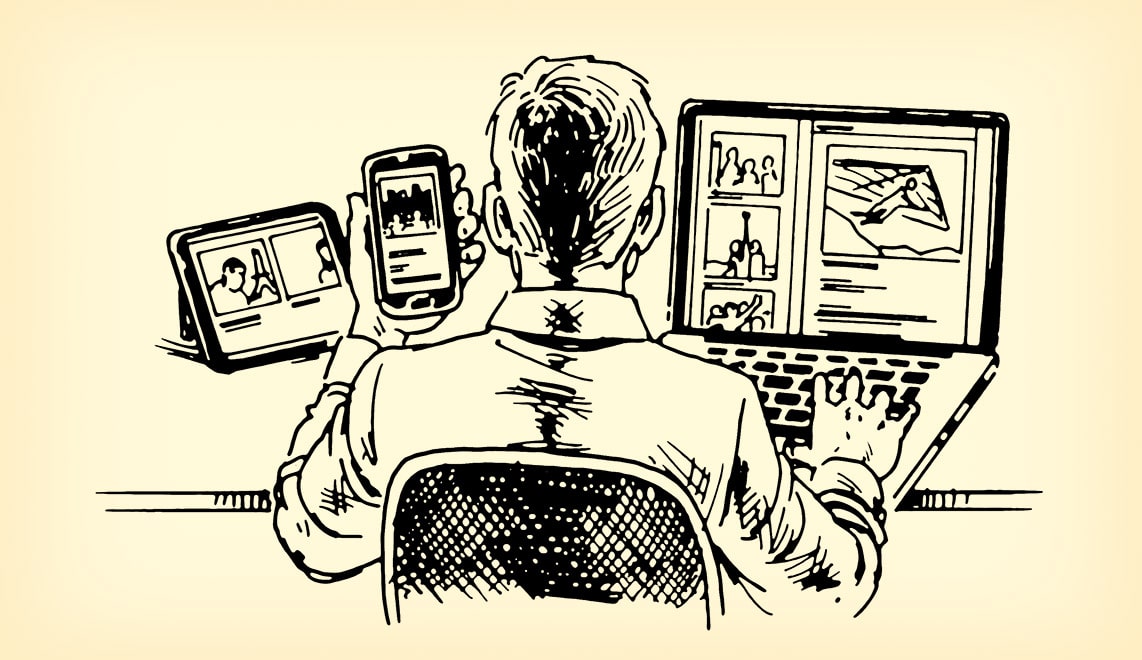
The traits described in Chapter 1 — physical fitness, a strong social network, usefulness — represent the near universals of status. They are the characteristics that have conferred recognition and respect for thousands of years in every culture across the world. They were assessed within a universally similar environment as well — a small, close-knit, face-to-face tribe. Within such a community, you competed for status with a few dozen men, and you absolutely knew what was expected of you if you wanted respect, as well as what constituted failure or falling behind. And your fellow tribe members would evaluate you not simply based on one status marker, but holistically. Maybe you were butt ugly, but a great hunter. Or maybe a disability prevented you from hunting, but your propensity for storytelling, humor, or diplomacy won you friends and allies. Even if your place wasn’t at the top, there was a place for you.
Today the social landscape is vastly different. Rather than small communities, we have large, fragmented networks; instead of one standard for status, we have legion. Thanks to digital technology, our geographic village has become an abstract global community and our number of status competitors has expanded exponentially. Forget surety about your place in the world; even if you’re high status in one group, you’re likely low status in another.
Yet the status-sensitive mechanics of our brains continue to operate just as they have for thousands of years: reacting with euphoria over status gains and despondency over status defeats. In today’s world, though, our status reaction is often triggered by things which don’t make sense for us to be concerned about — things that don’t have anything to do with our survival, much less our well-being. The modern man’s status drive is pulled in far more directions than our ancient ancestors’ were — directions that often do far more harm than good.
The result is a fundamental mismatch between our current social and cultural environment and what our status-sensitive brain evolved for. This mismatch is a big source of the increasing status anxiety many modern Westerners feel today. The solution then is to try as best we can to recreate the kind of environment our status drive was originally designed to navigate — a more natural habitat, so to speak.
The primary way we do that is by being very deliberate about what we decide to base the bulk of our status on, and with whom. We can’t always control the yardstick with which culture measures status, or what people think of us, but we can control what we care about, and how much weight we give to what other people think.
Below we go into detail about some brass tack tactics that you can use to balance, weigh, and manage the different status assessments you’re confronted with in the modern day. We also cover how to reap the benefits that come from our natural status drive (self-improvement, emotional and physical well-being) while not letting the burden of status anxiety become crushing.
Know What You Really Value

“In A Confession (1882)…[Tolstoy] explained how at the age of fifty-one, with the publication of War and Peace and Anna Karenina behind him, world-famous and rich, he came to realise that he had long been living his life not by his own values, or even by God’s, but by those of ‘society,’ which had inspired in him a restless desire to be stronger than others, more renowned, more important and richer. In his social circle, he noted, ‘ambition, love of power, covetousness, lasciviousness, pride, anger, and revenge were all respected.’ But now, confronting the notion of death, he doubted the validity of his previous goals.” –Alain de Botton, Status Anxiety
We live in a diverse, heterogeneous society. This means that beyond the traits outlined in Chapter 1 that nearly everyone recognizes as status-conferring, there are a plurality of values which exist that offer people a sense of status within their particular lifestyle group. Some think driving a Maserati and living in a big mansion shows status, while others believe that living frugally and simply does. Some think being a childless free-wheeling bachelor is high status, while others think being a devoted family man is. Some think being a strictly rational, secular humanist demonstrates status, while others think being a godly Christ follower is the ultimate status anyone can achieve.
If you’re not clear on what you yourself actually value, you’re likely to find your status drive pulled in many different directions; you can find yourself going after status in areas you don’t truly care about, and suffering status defeats from the criticism of those you don’t really respect. Concern for status is a two-edged sword. When it aligns with one’s values, it can help motivate you to live up to your ideals. But when it contradicts those values, it can distract you from your chosen pathway.
Thus, it’s paramount that you become crystal clear on what you think is truly valuable in life. This creates a filter that helps you gauge which status pursuits and opinions to disregard, and which to lend your attention and consideration. You must be selective!
The things you might choose to care about fall into 3 categories, each of which should be lent varying degrees of your concern and attention. From most important, to least:
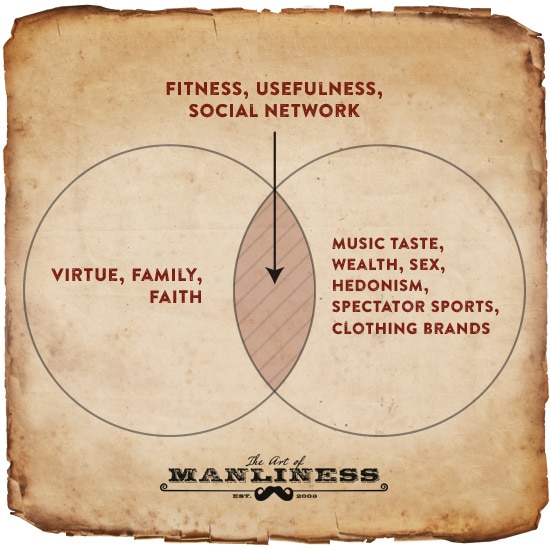
Virtue and other unqualified goods. The Stoics believed that virtue should be the focus of a man’s life, because it alone resides completely within our control. I’d add faith to the list of those things one can unabashedly value — caring both for how God and one’s fellow believers see you. And while the Stoics would disagree, I’d put family in this category as well. Since our family relationships are not something we can completely control, the Stoics opted for emotional detachment in this area too, arguing that one should be unmoved even by the death of a child. But sometimes the Stoics took things too far in my opinion, and the call to rob oneself of expressing the depth of genuine human feeling is one of the weaknesses of the philosophy. For a man who thinks as I do, “That no success can compensate for failure in the home,” falling short as a father or husband should rightly be allowed to sting right down to the core.
Preferred indifferents. This is the stuff we’ve already discussed in Chapter 1 like health and social connections, and also includes romantic relationships, professional success, wealth, etc. We have some, but not complete control over these aspects of our lives and we should do what we can to excel in these areas, allowing the competition-spurring properties of our status drive to motivate us to work harder and reach higher. But at the same time, you must be careful that you do not let them get in the way of your pursuit of virtue, nor invest your whole identity into them, lest you become devastated by status setbacks in these areas.
Unpreferred indifferents. Finally, there’s stuff that triggers your status drive, but offers you no real benefit, and can in fact end up distracting you from working on virtue, relationships, and other things you value more. This includes criticism from strangers online, pop culture, media, and advertising images that sell a lifestyle that contradicts your values, and enticements from friends that’ll pull you away from your chosen path.

It’s important to place virtue at the center of your identity, as it’s the only thing you have complete control over. Even if a few of of your status “spokes” fall apart, your life will keep on turning. If, on the other hand, you place something like wealth at the center of your life, and you lose it, the wheel will fall apart, and so will your life.
Learning to manage your status means sowing the cream of your energy in virtue and other things you consider unqualified goods, moderately investing in preferred indifferents, and blocking out the siren calls of unpreferred indifferents. Psychologist William James rightly noted that wisdom is “the art of knowing what to overlook.” This can hardly be truer than when it comes to status.
Here’s a silly example from my own life on the need to re-evaluate what you value and from where you draw your status. I used to be obsessed with Oklahoma Sooner football. When I was in high school and college I watched every game I could and kept up with the team religiously. Part of my identity and status was tied up with the team. Just as researchers have documented of other football fans, I experienced a surge of testosterone and serotonin whenever they won. My brain perceived the team’s victory as a status gain for myself as well.
But whenever the Sooners lost, I felt lousy and got really pissy. Their defeat was a vicarious defeat for myself too. I’m sure if you had tested my testosterone and serotonin levels right after a Sooner loss, they’d be lower than normal, just as you’d expect to find in someone experiencing lowered status.
Several years ago I got fed up with feeling like crap whenever the Sooners lost (an outcome I had no control over whatsoever), so I just stopped following the team. And you know what? It’s been years since I’ve experienced those stomach knots and anger that comes when your favorite sports team loses. Being a Sooner fan is no longer part of my identity, so I no longer base any of my status on how the team performs.
I didn’t give up caring about status altogether. I just stopped caring in this one respect, and directed more of my energy and time to building my status based on the values that are more fulfilling to me like my family, faith, and the Art of Manliness.
It was fairly easy for me to recognize that college football was not a worthwhile pursuit on which to base any of my status. But identifying the things you truly value takes some work and contemplation. If you don’t take the time to figure out the code you live by, you may end up in the shoes of someone like Tolstoy, who felt swept away into a status competition he really didn’t want to take part in. Us humans are pretty lazy. If we don’t know what we value, we’ll typically take the path of least resistance and adopt the values of everyone around us. And in today’s hyper-competitive digital status system, that usually means trying to out-experience and out-consume the other guy on social media.
Knowing what you value when it comes to your status and ignoring the stuff you don’t value is a powerful first step in managing your status drive and beating status anxiety.
What Role Should Consumer Goods Play in a Man’s Life and Status?
Material goods and accessories have played a role in signaling a man’s underlying status going back to our earliest hunter-gatherer days. For the past century such goods have become even more important in mediating social interactions; in an large, diverse, anonymous society, consumer goods allow people to quickly evaluate people’s status from afar — not only in regards to wealth, but concerning their personality, values, and membership in particular lifestyle groups.
It would be easy to deride these judgments as purely superficial, and to say that consumerism should play no role in a man’s life whatsoever. But if you’re reading this on a computer, in clothes you didn’t make yourself, that’s clearly not a tenable position. Even beyond the utilitarian properties of material goods, they function as effective relationship facilitators.
While mate selection may have been the primary and most paramount drive of primitive man, the complexity, anonymity, and diversity of modern society has made social partner selection just as important. It’s in the interest of our future prosperity and happiness to build a solid network of friends, lovers, and business partners. Teaming up with the right people — folks we gel with, who share our goals and perspectives, have the material and psychological resources we need, and will stick with and support us — can make a huge difference in our well-being and whether or not we’re able to get to where we want to go in life.
Consumer goods — from your glasses, to your clothes, to your car — signal these values, and can help us home in on such people at a glance; when we start work at a new job, visit a new church, or drop in on a party, we immediately scan the room to see who’s displaying the kind of accessories that indicate they might be “our kind of people.” Instead of having a bunch of fruitless conversations with people we don’t end up clicking with, these signals direct us towards the most promising folks to start chatting up and trying to befriend. At the same time, our signals communicate our status to others, who are equally scanning for them. Social signals, in the form of consumer goods, thus facilitate social exchange and the formation of like-minded cooperative alliances.
This isn’t to say that consumer goods should ever be a man’s primary focus. Rather they should simply serve, just like they did in primitive times, as symbols of your underlying traits and real accomplishments and actions taken. You must always consume less and create more, and if you want to signal the nature of your creativity with your clothes, do so in a modest and moderate manner.
Compare Status in a Healthier and More Effective Way
One solution to status anxiety that’s often proposed is to only compete with yourself. Instead of trying to do better than others around you, focus on doing better than you were yesterday. This is a valuable approach, and one that I at least partly ascribe to. For the most part, I try to outdo myself each and every day instead of obsessing about how I’m stacking up to others.
But competing against ourselves will only take us so far. It’s easy to get complacent when you’re just trying to beat the man in the mirror because ego and status aren’t at risk. We need the friction that comes with opposing forces to keep us sharp. When there’s a risk of public defeat or victory, we push ourselves out of our comfort zone. Other competitors can reveal flaws and weaknesses in ourselves we didn’t know we had. Competition keeps us hungry and humble. In this way, our natural drive for status can propel us to personal improvement.
But there’s a healthy and unhealthy way to approach comparison and competition. Research shows upward comparisons to others can spur self-improvement so long as the status of the person we’re comparing ourselves with is attainable.
Studies have shown that college students who compare themselves to and compete with a peer who’s doing slightly better than them do in fact increase academic performance. However, students who compare themselves to peers who far excel them academically become depressed, and their academic performance suffers.
Researchers believe the student who is doing only slightly better can provide more useful information on how a lower performing student can improve because the two are more alike than different. According to Susan Fiske, author of Envy Up, Scorn Down, students who are too far ahead aren’t able to provide a lower performing student with a useful road map that’ll guide them from where they are to where they want to be.
So when you compete with and compare yourself to others, do so with people who are doing slightly better than you. First, these peers have more to teach you on how to improve than peers that far excel you. For example, if you’re just starting out in weight training, comparing yourself to someone who’s been at it for a few months and is around your bodyweight, would be more useful than comparing yourself to a seasoned 275-pound guy who’s deadlifting 600 pounds. The advanced lifter is likely on a training program not suitable for beginners, so doing what he does wouldn’t help you.
Second, limiting your comparison group to individuals who are just slightly better than you reduces the debilitating feelings of inadequacy that can arise when you compare yourself to someone who’s majorly outpaced you. For example, if you’ve just started a business, comparing yourself to a company that’s been around for years and has millions in revenue coming in will just beget frustration. Sure, that successful business is something to aspire towards, but understand it may take years to reach that same level.
Again, be deliberate about your status reference group!
Correct the Faulty Assumptions That Come With Status Defeats
So we’re controlling our status values and status groups as much as we can; improving where we can, but not sweating it too much if and when we fall short. Another way in which we can manage our status anxiety is to correct the often faulty assumptions that we make in regards to our status failures.
There’s a tendency for us to globalize our status defeat in one area of our life to the entirety of our being. This type of thinking is what psychologists call “Me-Always-Everything” (MAE) thinking. According to the authors of The Resilience Factor, “A Me, Always, Everything person automatically, reflexively believes he caused the problem [or status defeat] (me), that it’s lasting and unchangeable (always), and that it will undermine all aspects of his life (everything).”
Understanding our tendency to make general and overarching conclusions about a status defeat can do a lot to stave off the anxiety that inevitably comes with it.
For example, let’s consider a major status defeat for many men: getting rejected by women.
Rejection hurts, badly. This feeling is intensified when your brain starts turning to MAE thinking. To blunt the sting of romantic rejection, you simply need to challenge the often faulty assumptions your brain makes about how far your failure really extends.
Here’s an example of MAE thinking that can happen when a guy gets turned down by a gal, and how he can challenge the erroneous, all-encompassing connections that the brain tends to make:
Me: “Man, Jill said no when I asked her out. I must be unattractive and awkward.” (The reason that Jill said no could be due to a whole bunch of factors that have nothing to do with you personally. Maybe she said no because she really did have something going on the night you asked her out. Maybe she said no not because you’re unattractive and awkward, but you simply don’t match up with her taste in men. Maybe you’re blonde and she digs brown hair. Or maybe she doesn’t get your sense of humor. It’s not about you specifically. If it was another blonde guy with a dry sense of humor that asked her out, she probably would have said no to him, too.)
Always: “Women always say ‘no’ when I ask them out. I’ll never have a girlfriend.” (Is this really true? You did have that date with that one gal a few months ago. Sure, it didn’t go anywhere, but she did say “yes” to you. Also, concluding that you’ll never have a girlfriend based on a single instance makes no logical sense. You might not have a girlfriend now, but you could have one in a few months. Who knows?)
Everything: “I’m such a loser.” (You’re a loser just because a single woman turned you down? That’s probably not true. You live virtuously. You have a good job and are excelling at it. You’ve got a few close friends that are with you through thick and thin. You have a hobby that you really enjoy. You have a roof over your head. Etc., etc. Don’t globalize a status defeat in one area of your life to the entirety of your existence.)
Anytime you start feeling the angst of status anxiety, check to see if you’re taking part in MAE thinking. If you are, challenge the assumptions that you’re making about yourself and others. Just because you or someone else has experienced a status setback in one area, doesn’t mean either you or he don’t have worth and value in other areas.
So too, status defeat is not even always your fault. Being good merit-o-cratics that we are, we have a tendency to attribute all the success a person enjoys solely to their own efforts. But we forget the role chance and luck play in success or failure. As the French philosopher Montaigne noted: “I have often seen chance marching ahead of merit, and often outstripping merit by a long chalk.”
Yes, some people work hard to achieve their success (and some people don’t). Even the folks who pulled themselves up by their bootstraps likely had some help from Lady Luck along the way. This isn’t to degenerate what they’ve done, it’s simply recognizing reality. So if you don’t feel like you’re as successful as one of your peers, don’t necessarily get down about it. Your failure isn’t entirely your fault, just as their success isn’t entirely their responsibility. Sometimes chance steps in and tilts things one way or another for no reason whatsoever.
To reduce the anxiety that chance’s fickle ways have on you, you simply have to do all you can to up your chances of success, and then learn not only to accept, but even love and embrace your fate. As Nietzsche advises: Amor fati.
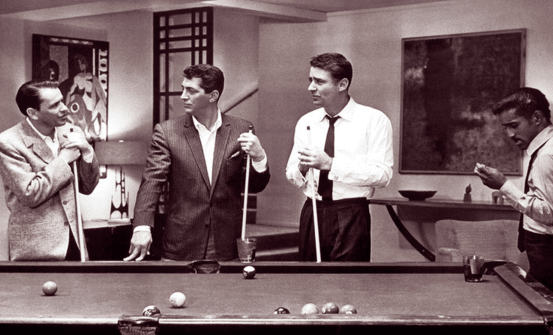

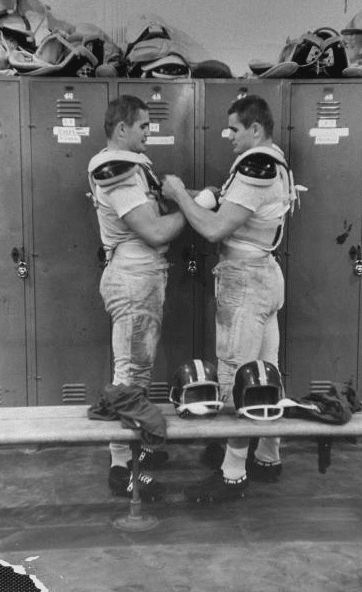
0 Comments